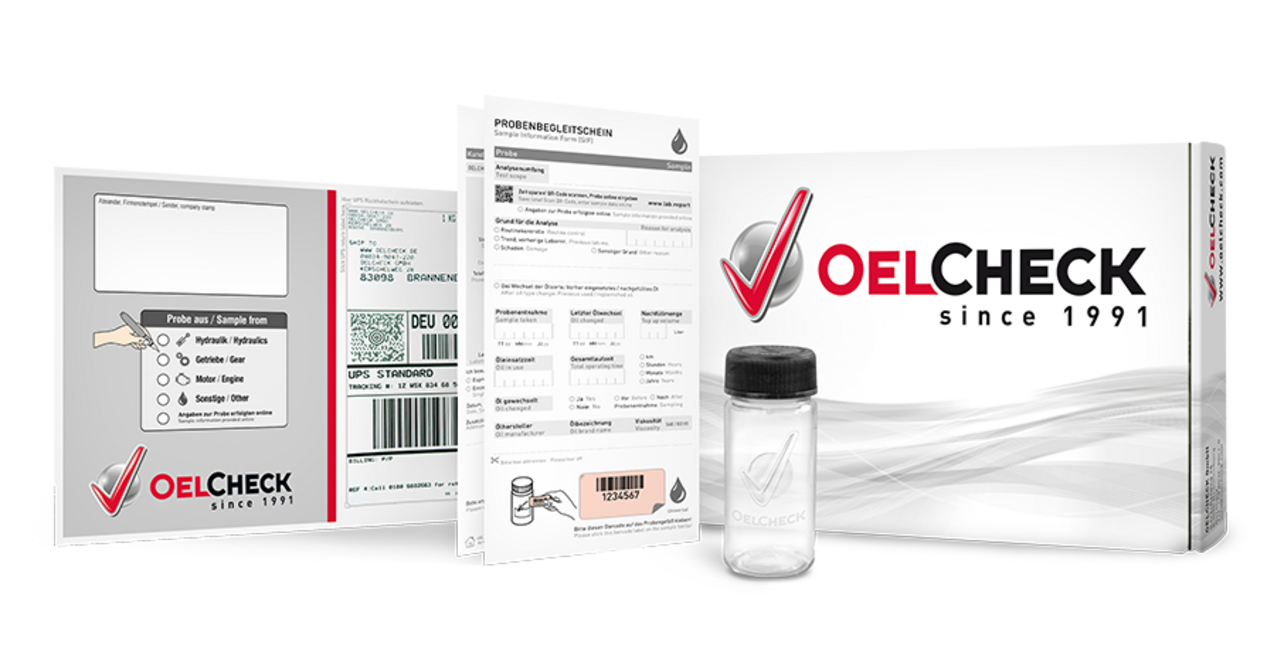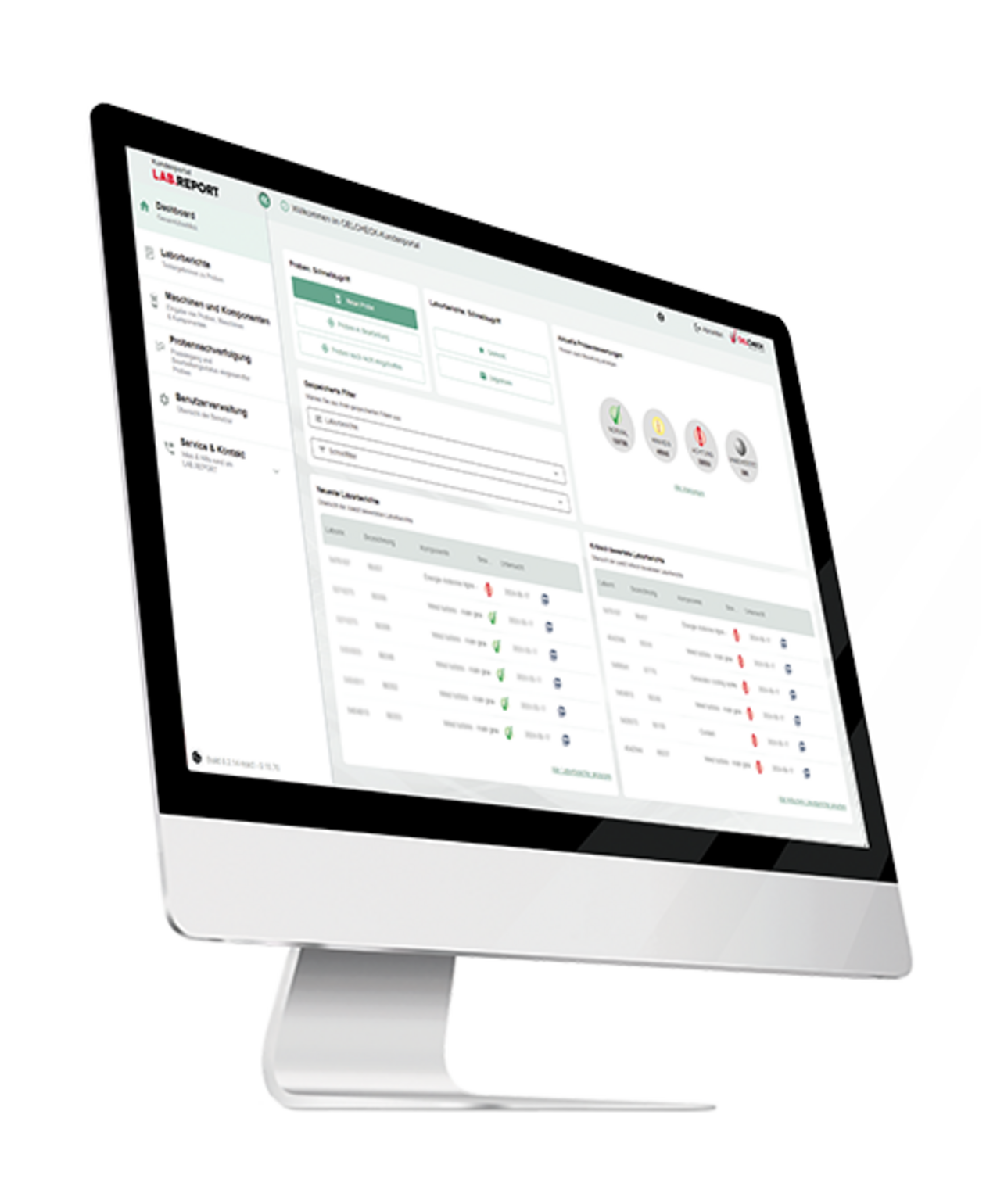Q&A Questions and answers

The latest article
From oil sample to analysis – how we ensure the highest quality
Year of publication: 2025
In the last OELCHECKER, you reported on the importance of taking an oil sample from the machine or system correctly. What happens when our oil samples reach the OELCHECK laboratory?
- A lab report with no indication of water content
- Additional additives for lubricants
- Additional tests, the supplement to the all-inclusive analysis kits from OELCHECK
- Analyses and individual tests only in conjunction with specification of the lubricant and/or data sheet.
- Biodiesel in engine oil
- Black hydraulic oil due to diesel effect
- Black oil in diesel engine
- Bypass filter for engine oil?
- Can lubricating oil go bad?
- Can values change if the oil samples are stored for a long period of time?
- Cause for deviating purity classes in comparative analyses
- Correlation between wear, impurities and particle counting
- Data protection at OELCHECK
- Determining the mileage of an engine with an oil analysis
- Diesel fuel fit for the winter
- Different values from OELCHECK and another laboratory
- Discrepancies between laboratory results and portable particle counters
- Discrepancies in the "Additives" section - do these indicate a mixture of two different types of oil?
- Do online oil sensors make OELCHECK laboratory analyses unnecessary?
- Engine oils - Warning against uncontrolled oil change extensions
- From oil sample to analysis – how we ensure the highest quality
- Gear damage despite oil analyses?
- High levels of wear metals with normal purity classes?
- How can E10 be detected in engine oil?
- How clean are the OELCHECK sample bottles?
- How do I take an oil sample correctly?
- How long can a lubricating oil or hydraulic fluid be used?
- How much oil does OELCHECK need for an oil analysis?
- Increasing calcium content in lubricating oils
- Is a fresh oil analysis worthwhile?
- Is it possible to simplify the documentation of OELCHECK lab-reports?
- Leakages on seals despite very good oil purity?
- Miraculous oil increase in the engine of a construction machine
- OELCHECK lubricant analyses – their impact on sustainability and CO2 savings in industry
- Oil samples from abroad
- Parameters for grease analyses
- SAE classes 110 and 190 for automotive gear oils
- SAE engine oil or HLP hydraulic oil for construction machinery hydraulics?
- Safety data sheet prior to the analysis
- Sample containers for refrigeration compressor oils
- Saving money with lubricants - price alone doesn't cut it.
- Shipping oil samples - what do you have to consider?
- Silverfish in hydraulic oil
- Soot index for petrol engines
- Sulphur in oil - impurity, oil component or additive?
- Synthetic oil: What should be considered when switching?
- Synthetic oils - does their use really pay off?
- The shear viscosity of greases
- The time factor when taking samples correctly
- Tribologists at OELCHECK
- True or False: Was the oil really changed? Or Was the wrong oil filled?
- What does the change in colour say about the quality of the oil?
- What is meant by the term "bio-oil"?
- What percentage of water in the oil is critical?
- What's an OELCHECK "same day analysis"?
- Why are no values for oxidation given in some OELCHECK laboratory reports?
- Why do oils become cloudy?
- Why do you not indicate any "limit values" in your laboratory reports?
- Why does my oil foam?
- Zirconium – why does this element pop up in lab reports?


